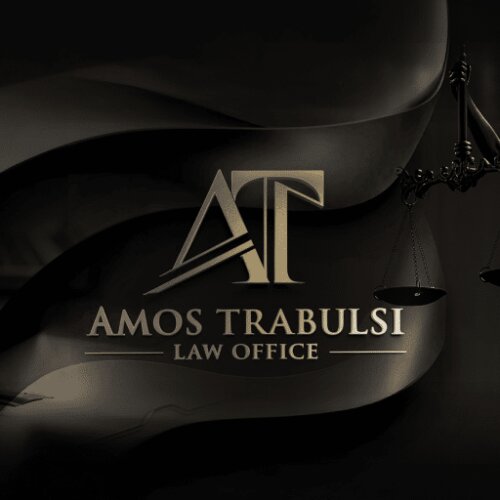Best Government Contract Lawyers in Israel
Share your needs with us, get contacted by law firms.
Free. Takes 2 min.
Or refine your search by selecting a city:
List of the best lawyers in Israel
About Government Contract Law in Israel
Government Contract Law in Israel pertains to the legal principles governing procurement processes conducted by governmental bodies. These include ministries, local authorities, and other statutory agencies. The aim is to ensure public procurement is carried out transparently, efficiently, and fairly, ensuring the best value for public funds. This legal field covers a wide spectrum, including bidding processes, tender requirements, contract execution, and conflict resolution mechanisms.
Why You May Need a Lawyer
Hiring a lawyer specializing in Government Contract Law in Israel can be crucial in several situations:
- Understanding Tender Procedures: Navigating the complexities of submitting bids, fulfilling documentation requirements, and complying with legal norms.
- Negotiating and Drafting Contracts: Ensuring terms are fair, clear, and in compliance with Israeli law.
- Contract Disputes: Addressing disputes over contract terms, execution, or breaches.
- Compliance Matters: Ensuring your business adheres to all regulatory compliance issues specific to government contracts.
- Litigation and Appeals: Representing your interests before courts or arbitration panels in conflict cases involving public procurement.
Local Laws Overview
There are several critical aspects of local laws in Israel pertinent to government contracts:
- Tender Laws: The cornerstone of Israeli procurement law, which mandates government projects to go through a competitive bidding process to ensure fairness and efficiency.
- The Mandatory Tenders Law, 1992: Requires public entities to conduct transactions via open competitive processes, with some exceptions.
- Regulations on Preferences: Laws exist to promote local products and services, providing certain advantages to Israeli companies in tender processes.
- Judicial Oversight: Courts have significant authority to review procurement decisions, which plays a critical role in maintaining integrity in government contracting.
Frequently Asked Questions
What is a government tender?
A government tender is a formal solicitation issued by a government entity to procure goods or services through a competitive process where multiple suppliers submit bids.
What types of disputes can arise in government contracts?
Disputes may include disagreements over contract terms, performance issues, payment delays, or non-compliance with tender requirements.
How does the appeals process work in procurement cases?
Aggrieved parties can file appeals with the Contracts Authority, and in some cases, disputes also reach the Israeli judicial system for resolution.
Can foreign companies participate in Israeli government tenders?
Yes, foreign companies can participate, although certain tenders may have preferences or requirements that favor local businesses.
What role does the Tender Committee play?
The Tender Committee oversees the procurement process to ensure compliance with regulations and that decisions are made fairly and transparently.
Are there specific deadlines for submitting a tender proposal?
Yes, each tender documentation will specify a submission deadline which must be adhered to strictly, or the bid may be disqualified.
How are tender proposals evaluated?
Proposals are evaluated based on criteria outlined in the tender documents, considering factors such as price, technical capability, and experience.
What documentation is typically required when submitting a tender?
This may include proof of financial stability, previous project experience, technical proposal details, and compliance certifications.
What happens if two bids are evaluated as equally suitable?
There may be additional criteria for selection or conditions for re-bidding as outlined in the tender documentation or regulations.
How can I access open tenders?
Open tenders are usually published on governmental websites and bid platforms, providing details for prospective participants.
Additional Resources
For more information and resources on government contracts in Israel, consider exploring the following:
- Israeli Ministry of Finance: Provides details on public procurement regulations and tenders.
- Government Procurement Administration: Responsible for overseeing public procurement policy.
- Israel Antitrust Authority: Ensures competition laws are adhered to in government contracts.
- Israel Bar Association: Can help locate qualified lawyers specializing in government contract law.
Next Steps
If you require legal assistance in government contracting in Israel, consider taking the following steps:
- Evaluate Your Needs: Clearly define your issue or goal to better understand the type of legal assistance you need.
- Seek Recommendations: Ask for referrals or conduct research to find qualified lawyers with expertise in government contracts.
- Arrange Consultations: Meet with potential lawyers to discuss your case and evaluate their experience and approach.
- Understand the Costs: Ensure you have a clear understanding of legal fees and potential costs involved before proceeding.
- Prepare Documentation: Gather all relevant documentation pertaining to your government contract issue for review by your legal advisor.
Lawzana helps you find the best lawyers and law firms in Israel through a curated and pre-screened list of qualified legal professionals. Our platform offers rankings and detailed profiles of attorneys and law firms, allowing you to compare based on practice areas, including Government Contract, experience, and client feedback.
Each profile includes a description of the firm's areas of practice, client reviews, team members and partners, year of establishment, spoken languages, office locations, contact information, social media presence, and any published articles or resources. Most firms on our platform speak English and are experienced in both local and international legal matters.
Get a quote from top-rated law firms in Israel — quickly, securely, and without unnecessary hassle.
Disclaimer:
The information provided on this page is for general informational purposes only and does not constitute legal advice. While we strive to ensure the accuracy and relevance of the content, legal information may change over time, and interpretations of the law can vary. You should always consult with a qualified legal professional for advice specific to your situation.
We disclaim all liability for actions taken or not taken based on the content of this page. If you believe any information is incorrect or outdated, please contact us, and we will review and update it where appropriate.
Browse government contract law firms by city in Israel
Refine your search by selecting a city.














